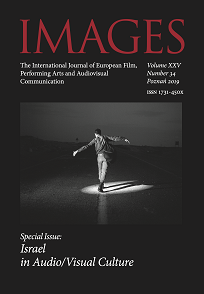The success of Adi Nes’s fictional photographic portraits: figures of alterity and the utilization of memories in visual self-portraiture
The success of Adi Nes’s fictional photographic portraits: figures of alterity and the utilization of memories in visual self-portraiture
Author(s): Carrie BettelSubject(s): Gender Studies, Jewish studies, Photography, Visual Arts, Social differentiation
Published by: Uniwersytet Adama Mickiewicza
Keywords: autobiography; identity; photography; referentiality; figures of alterity; Adi Nes; Israel; army;
Summary/Abstract: This paper demonstrates the way an autobiographer shapes his/her identity in the creation of his/her narrative. The autobiographer’s struggle in his/her understanding of the self is sometimes evident in the work. This project focuses specifically on the work of Adi Nes, an Israeli photographer. His photographs demonstrate the ways in which he feels like an outsider in Israel, as both a member of the Sephardic community and a homosexual. His photographs are staged, and he uses figures of alterity by projecting himself into his images with the use of models, which may lead the viewer to question the referentiality, or truthfulness, of each image. While demonstrating his identity through personal experience and memories, his images are created in the context of a stratified society, demonstrating the power dynamics of the military and the different groups that reside within Israel. The paper draws on images from three series – “Boys” (2000), “Soldiers” (1994–2000) and “Prisoners” (2000).
Journal: Images. The International Journal of European Film, Performing Arts and Audiovisual Communication
- Issue Year: 25/2019
- Issue No: 34
- Page Range: 45-57
- Page Count: 13
- Language: English

